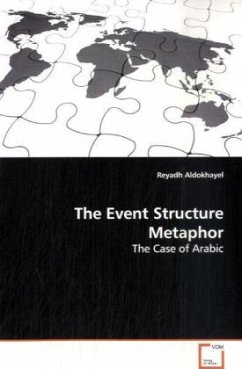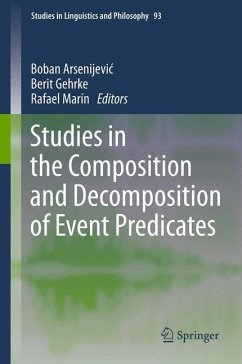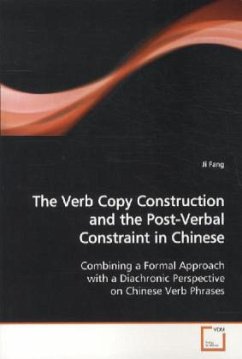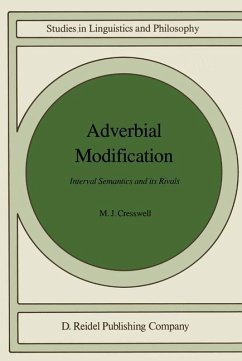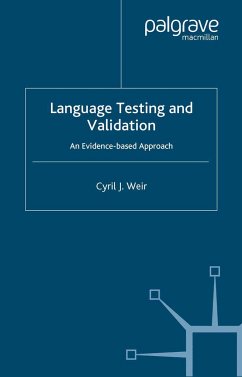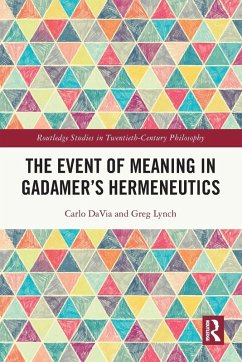
The Syntax of Event Structure in Chinese
Versandkostenfrei!
Versandfertig in 6-10 Tagen
45,99 €
inkl. MwSt.

PAYBACK Punkte
23 °P sammeln!
Based on the idea that event structure plays an important role in linguistic analysis, this book focuses on three main issues. The first issue is concerned with the intertwined relationships among eventuality types in both English and Chinese, their syntactic distributions, and semantic interpretations associated with almost-adverbials, in-adverbials, and for-adverbials. The second issue is concerned with the development of Chinese resultative verb constructions and how the development is related to other syntactic constructions such as the Ba-construction, the Bei- construction, and the Verb-...
Based on the idea that event structure plays an important role in linguistic analysis, this book focuses on three main issues. The first issue is concerned with the intertwined relationships among eventuality types in both English and Chinese, their syntactic distributions, and semantic interpretations associated with almost-adverbials, in-adverbials, and for-adverbials. The second issue is concerned with the development of Chinese resultative verb constructions and how the development is related to other syntactic constructions such as the Ba-construction, the Bei- construction, and the Verb-copying construction. The last issue is concerned with the linking of arguments to syntax in Chinese resultative verb constructions. It is demonstrated that the linking principles based on event roles are able to account for the complementary distribution of the Ba- construction and the Verb-copying construction, because 'ba+NP' is associated only with the Locus of affect role (an entity that is involved in the endpoint), whereas 'a copied verb+NP' is associated only with the Target of activity role (an entity that undergoes the action).



